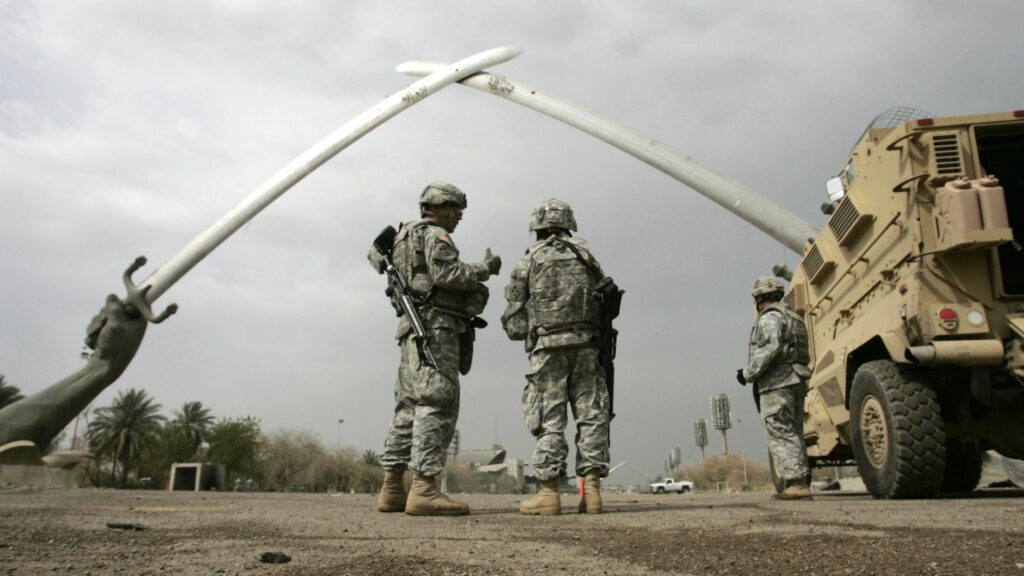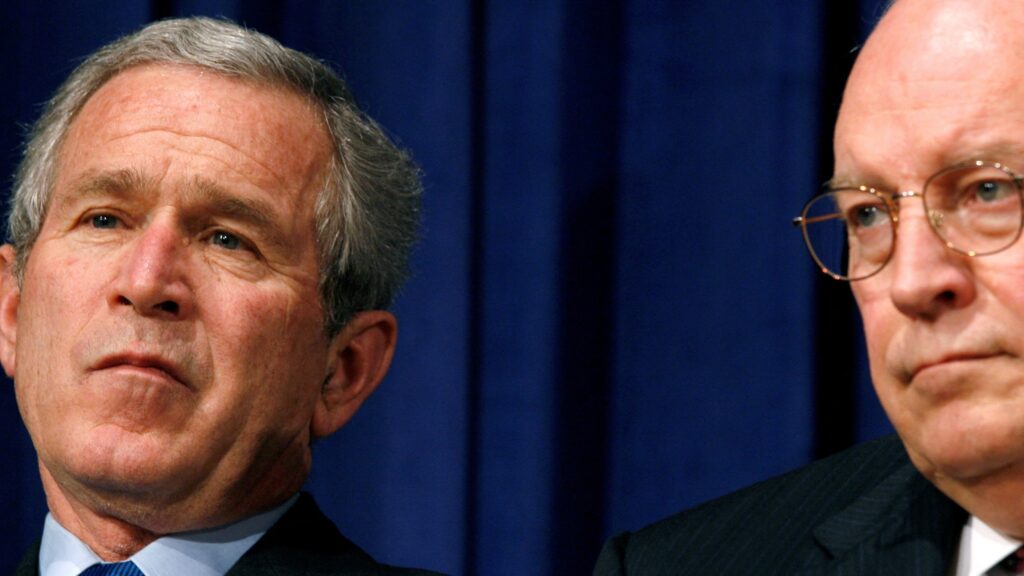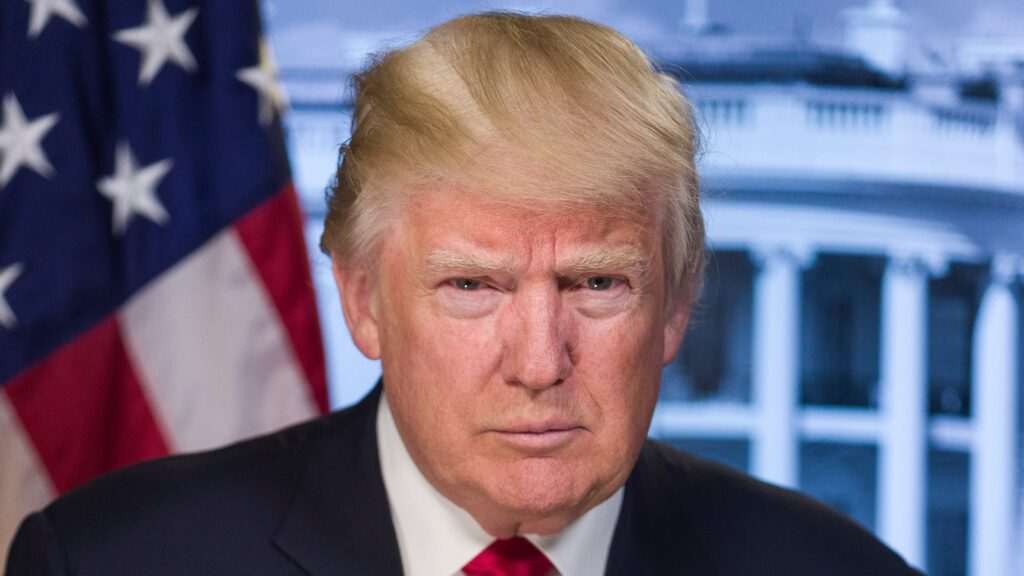March 20, 2023, marked the 20th anniversary since the invasion of Iraq began. It’s tough to believe; the Iraq War seems like a lifetime ago.
I was 12, gathered with my family in front of the television, the night the war started. George W. Bush was speaking. “On my orders,” the President of the United States said solemnly, “coalition forces have begun striking selected targets of military importance to undermine Saddam Hussein’s ability to wage war. These are opening stages of what will be a broad and concerted campaign…”
The Iraq War had officially begun. The country was bombed in a campaign called “shock and awe.” Those who opposed the war, for the most part, knew Saddam was an evil dictator. The question was to what extent he should be removed and democracy imposed at gunpoint.

Bush and Cheney’s argument was that Saddam was tied to the 9/11 attacks and al-Qaida, and that he was producing weapons of mass destruction. All of that turned out to be false. But 20 years later, what’s striking is just how bad it all was.
After the 9/11 attacks, if Bush and his team had tried to make the worst possible foreign policy choices that would inflict maximal short-term and long-term damage on American lives, they picked well. The Iraq invasion was a cataclysmic, destructive, suicidal war.
It was the single worst foreign policy decision in the last half-century. And for young people who will live with its consequences the longest, it’s important to be honest: In many ways, there’s a direct line from March 20, 2003, when the Iraq War was launched, to the presidency of Donald Trump and our own chaotic, nihilistic era.
The Iraq War was all based on a lie.
The entire premise of the invasion was the lie that Saddam Hussein had a connection to al-Qaida and that he was building weapons of mass destruction. Just one year after the invasion, the CIA concluded that Saddam had no weapons of mass destruction. He hadn’t even begun any program to build them. And according to a 2008 Pentagon study, Saddam had no connection to al-Qaida.
The al-Qaida-Saddam connection was spurious from the start. Saddam was a Baʿathist, a secular dictator; bin Laden was a religious fundamentalist bent on jihad. The two were natural enemies. Yet according to Bush’s top counterterrorism advisor, Richard Clarke, Bush asked him the day after 9/11 to “see if Saddam did this.” Within hours of the 9/11 attacks, Defense Secretary Donald Rumsfeld directed the Joint Chiefs of Staff to look for evidence tying Saddam to the attacks.
Rumsfeld, Cheney, Wolfowitz: They had wanted regime change for years. The people around Bush, who had also been around Reagan and Bush Sr., had their eyes on Iraq for over a decade. Cheney wanted Iraq, and after 9/11, he would get Iraq.
The lead-up to the Iraq War saw the largest anti-war rallies in human history, with some 14 million people protesting in almost 800 cities around the world. The United States received U.N. Authorization, under Resolution 1441, but only the United States (and the United Kingdom) interpreted this as justifying the war. Despite all of the legal theories put forth by the Bush administration — it was a preventative war, a preemptive war, an emergency situation — the U.S. Invasion of Iraq was widely considered illegal and a breach of the U.N. Charter.

The major media outlets reported multiple falsehoods during the Iraq War, ventriloquizing the administration’s talking points. Many of their “sources,” like the con man Ahmed Chalabi, were dubious. Just one year into the war, The New York Times issued a stunning mea culpa and apologized for misleading its readers. “Looking back, we wish we had been more aggressive in re-examining the claims as new evidence emerged — or failed to emerge,” the Times wrote.
The whole Iraq War was based on lies. They lied about weapons of mass destruction. They lied about the Saddam-al-Qaida connection. They lied about objectives, about funding, about intelligence, about implications, about casualties. They even lied about when the “mission” would be “accomplished.”
Not to worry. In 2002, just before the invasion, Donald Rumsfeld assured everyone it would be a brief war. “Five days or five weeks or five months, but it certainly isn’t going to last any longer than that,” Rumsfeld said.
The Iraq War was a strategic failure.
After the 9/11 attacks, the United States had one principal enemy: Osama bin Laden. The countries the United States needed to put pressure on after 9/11 were not Iraq or Iran, but Saudi Arabia and Pakistan.
Iraq diverted attention and resources from Afghanistan, and became a magnet for global terrorism.
America overthrew Saddam, thereby removing Iran’s principal enemy in the region. Saddam’s removal — along with “de-Baathification” led by the Coalition Provisional Authority, which disbanded the army and left hundreds of thousands of former Iraqi soldiers unemployed — created a huge vacuum in the region.
In many ways, there’s a direct line from March 20, 2003, when the Iraq War was launched, to the presidency of Donald Trump and our own chaotic, nihilistic era.
A new terror group called al-Qaida in Mesopotamia moved in and began launching suicide-terror bombings against civilians and U.S. soldiers. Al-Qaida in Mesopotamia, with its brutal, thuggish leader, eventually morphed into the Islamic State of Iraq and Syria, and then into the Islamic State. Iraq became a magnet for extremists around the world. The Iraq War was the perfect storm that allowed ISIS to grow.
Twenty years later, Iraq remains unstable. Iran is stronger than ever and run by hardliners. China can be gleeful that America wasted so much military might and dollars on a pointless war. Russia can say “What about Iraq?” every time its own illegal invasion and attempted annexation is questioned.
The Iraq War strengthened America’s enemies, depleted America’s energies and set the United States back in its long-term competition with China. Speaking of China, guess which country is gobbling up large amounts of oil and investments in Iraq?

The Iraq War was enormously expensive.
Three months before the Iraq War began, the Bush administration’s top budget official estimated the war would cost $50-60 billion. By 2007, the United States was spending $10 billion per month in Iraq.
According to Nobel Prize-winning economist Joseph Stiglitz and Harvard professor Linda Blimes, the lowest approximate cost of the Iraq War is $3 trillion. The actual number, when factoring in health care costs, veterans treatments, and the cost of interest, will be much higher.
But the war was costly in other ways. Over 4,000 Americans died in Iraq. The number of Iraqis killed will never fully be accounted for, but one study put the Iraqi dead at 500,000. Brown University’s Costs of War Project puts the number of Iraqi civilians killed — by all combatants in the war — at between 275,000 and 306,000.
The true cost — the human cost, the family cost, the intergenerational cost — is too great to be quantified. For each Iraqi civilian killed, as with each U.S. soldier killed, whole families and neighborhoods and communities were torn asunder, driven to tragedy and grief and death because of the Iraq War. The cost to minds, families and future citizens — the young who will not know their fathers and mothers — these will never be known.

The Iraq War distorted long-term priorities.
Because the Iraq War was illegal and based on a lie, it required extra measures of duplicity to ensure public conformity. The direct costs were huge; the opportunity costs were even greater.
The Iraq War monopolized all of America’s public policy energies. Iraq was what the media and the awesome machinery of the U.S. government were focused on. Time, resources, thinking and money that should have been devoted to fighting climate change, tackling inequality, improving infrastructure at home and planning to compete with China long-term was instead all funneled into fighting insurgency in Iraq and trying to create a democracy there.
If you’re a young person and see record-shattering temperatures and wonder why more wasn’t done on climate change; if you see crumbling bridges and hollowed out communities and wonder why more wasn’t spent at home; if you see the worst inequality since the Gilded Age and wonder how we got here — it’s because our leaders were too busy spending more than $3 trillion and precious hours on invading a country that had nothing to do with 9/11 and posed no direct risk to the U.S.
The true cost — the human cost, the family cost, the intergenerational cost — is too great to be quantified.
By all accounts, climate change is worsening. The food and energy crises are continuing. And the long-term economic competition with China is beginning several years too late.
China’s GDP in 2003 was $1.66 trillion. It is today over $17 trillion. The single greatest long-term rival for the United States is China. What we thought the Soviet Union was is what China represents: an economic behemoth. Could the United States have better prepared for this emerging competition if it hadn’t gone to war in Iraq? If more China experts were hired in the U.S. government? If more attention and time was paid to long-term strategy and sober analysis, and not to military blunders?
When it comes to climate change, China, and domestic renewal, America is playing catch-up. It will take extra effort and years to compensate for the wasted time and resources misspent on the Iraq War.
The Iraq War destroyed public trust.
George W. Bush’s approval rating on the eve of the Iraq War was 71%. This was down from the historic 90% approval rating he had after 9/11. Americans of all stripes and parties rallied around their leader and their government when the nation was attacked.
And what did the Bush Administration do with this immense and unprecedented bounty of faith and support? It weaponized patriotism to invade Iraq. The Iraq War placed upon the American people, who are the ultimate electors of the American government, the burden of all the secret policies carried out in their name: The torture chambers of Abu Ghraib. The clandestine prisons and black sites in Syria, Iraq and elsewhere. The civilian deaths. In the words of U.S. Maj. General Antonio Taguba, the police and intelligence services committed “sadistic, blatant and wanton criminal abuses.”
When Bush left office in 2009, he did so with the lowest approval rating ever: a dismal 22%.

Today, trust in government is nearing an all-time low. Trust in government has always waxed and waned, but if you look at the numbers, it took a nosedive in the modern era after George W. Bush’s second term.
Younger people in America today are less trusting of each other than older Americans. They also have the lowest trust in public institutions. Not only are younger Americans less trusting of each other, they are less trusting of the military, religious leaders, police officers, business leaders and other key institutions.
Those born around the Iraq War grew up in the shadow of an illegal war launched for cynical reasons. Their earliest years involved politicians on television repeating lie after lie, newspapers repeating lie after lie, and discussions among elders steeped in lies and fear.
The Iraq War destroyed the Middle East.
In 2002, the year before the Iraq War, Saddam Hussein was isolated. Iran was governed by the moderate leader, Mohammad Khatami. In the early weeks after 9/11, Iran was secretly assisting U.S. efforts to hunt down al-Qaida operatives.
The response? Bush’s “Axis of Evil” speech, in which Iran, Iraq and North Korea were said to form a maniacal triumvirate.
Iraqi society was decimated; 9.2 million Iraqis are today displaced or refugees. The insurgency attracted new adherents to al-Qaida. Bashar Assad of Syria, next door, exploited the war by training and then sending militants to cause further chaos. Some of these militants would later become the leaders of ISIS. The war tore apart Shiʿi, Sunni and Kurdish communities, each seeking out protection from militias. It deepened Sunni-Shiʿi divisions and poured into them poison: forcing people to pick a side; forcing Muslims into their limited sectarian identities; forcing some innocents to take up arms; demanding submission to an illegal war.
It will take generations for Iraqis, Syrians and other innocent people in the region to recover from the war and what came after. For the survivors, in America and in Iraq, the war had a radicalizing, polarizing effect.
“Tell me how this ends,” General David Petraeus famously said at the outset of the war. For many Iraqis and others, the war never ended. Its consequences will endure for years to come.
The Iraq War led us to Trump.
Any war exacerbates tensions at home, but the Iraq War contaminated the ideals of patriotism. The war pit American against American, exploiting divisions within the country.
The Iraq War created the sensation of Barack Obama. Take Obama’s speech in 2002 calling it a “dumb war” — while Hillary Clinton and most Democrats supported Bush’s war. This gave Obama well-earned credibility when he ran for president, as the rest of the Democratic Party came to realize they had co-signed a disaster.
On the Republican side, the fallout from the Iraq War made Bush and Cheney so unpopular that Cheney could not run for president. A void opened in the Republican Party, which historically had chosen the heir apparent — Reagan, Bush Sr., Ford, Nixon. The only thing the Republicans could do was try for a Hail Mary. John McCain picked Sarah Palin as his running mate, who then repeated every negative trope about Obama “palling around with terrorists.” Palin gave us the Tea Party, and the Tea Party gave way to Trump.

An internal rebellion within the Republican Party usurped the leadership. In 2016, George W. Bush’s brother Jeb was the favorite. The Party had learned nothing since the Iraq War. And then came along Trump, who blended populism with mercantilism with racism into a potent cocktail, and fed it to a base starved for anything but war.
All of the consequences of the Iraq War listed here — the lies, the strategic failures, the distortion of long-term priorities, the consumption of public space, and the destruction of public trust— also unleashed Trump. The divisions and antagonisms created by the Iraq War turned America against itself, providing the perfect opportunity for an opportunist like Trump to walk in and take the presidency.
The full and true consequences of the Iraq War will not be known for some time. Twenty years is a blip in history, and many of the costs of that war will be cumulative. The least we can do is be honest in our retelling, and make amends where possible. At a minimum, we can ensure we never repeat the horrors and blunders of such a foolhardy, disastrous war again.

